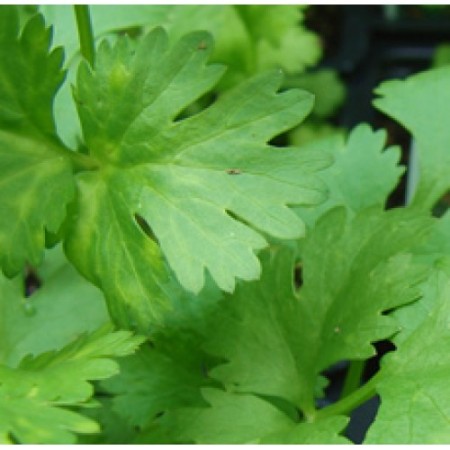Coriander Essential Oil (Russia)
Product Name: Coriander Essential Oil (Russia)
Botanic Name: Coriandrum sativum
Botanical Name: Coriandrum sativum
Extraction Method: Steam Distilled
Description: This annual or biennial plant is a native of Morocco and
grows to about 1 meter (3 feet) in height. It has sparse, fine, feathery leaves
and pinkish/white flowers. The brownish, globose seeds have a disagreeable
smell until they ripen, when they take on their spicy aroma. The bright green
delicate leaves, umbels of lace-like white flowers are followed by a mass of
green (turning brown) round seeds. These seeds are hard and egg-shaped, borne
in pairs, which do not separate. The Oleoresin has a strong aroma of coriander.
Aromatic Scent: Coriander Essential Oil has a sweet, spicy, slightly
fruity, herbaceous warm smell. It has been claimed by some aromatherapists that
the aroma improves if allowed to age.
Common Uses: Coriander Essential Oil is said to stimulate the appetite,
ease indigestion and relieve neuralgia. The therapeutic properties of Coriander
Egyptian Essential Oil are listed as analgesic, aphrodisiac, antispasmodic,
carminative, deodorant, digestive, fungicidal, revitalizing and stimulating. It
can aid in relieving mental fatigue, migraine pain, tension and nervous
weakness. There are some indications that it can also be useful in combating
colds and flu.
History: The Egyptians used Coriander Seeds as an aphrodisiac were
found in the tomb of Tutankhamen; the Romans and Greeks used the seeds to
flavour their wines; and in India, the seeds are still used for cooking. The
Benedictine monks documented using them in 1510 as an ingredient in their
herbal tonic known as Benedictine. The Carthusian Monks used them to make
Chartreuse in the 1740's, and the Carmelite order in France used Coriander
Seeds as an ingredient with lemon balm, lemon zest, angelica root and nutmeg in
their 17th century eau de toilette known as Carmelite Waters.














